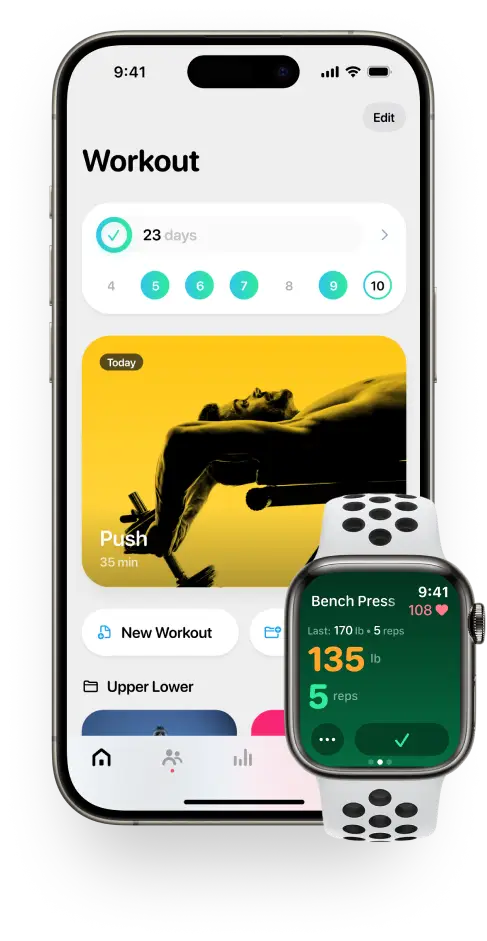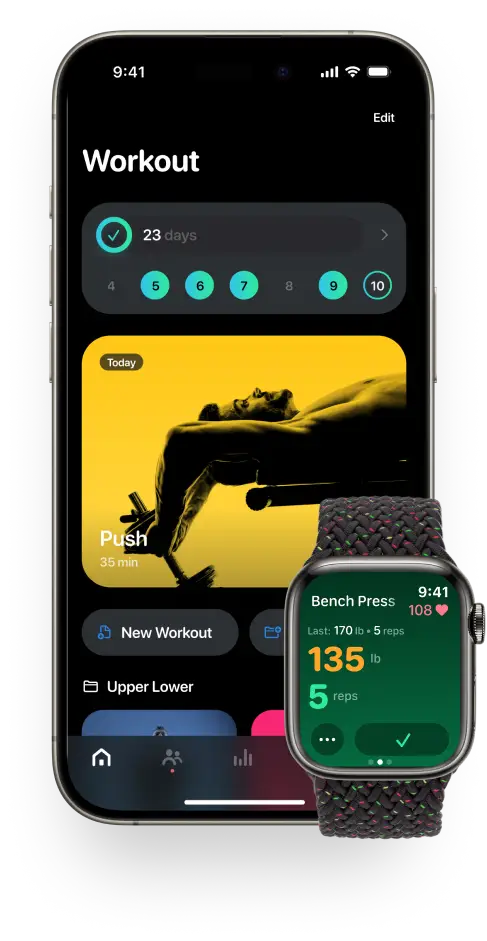Is Pre-Workout Good for Cardio?
Is pre-workout good for cardio? Keep reading to learn more about which pre-workout will boost your cardio performance.
Pre-Workout and Cardio
In the fitness world, we’re used to taking pre-workouts to fuel our muscles for high-power movements.
Strength training and heavy lifting sometimes don’t feel complete without a good dose of pre-workout.
But can pre-workout supplements benefit your cardio workouts too? Although you may love to fuel up with a plate of pasta before a long run, we generally don’t associate taking pre-workout powder with distance running or dance classes.
And we may be missing out here!
Can pre-workout be just as beneficial to a cardio session as strength training?
Take a look below to learn more about what pre-workout does to the body and how to use it most effectively.
What is Pre-Workout
Not all pre-workouts are created equal. Depending on which supplement you take, you could be looking at very different ingredients and compositions.
How does pre-workout work? By design, pre-workout supplements enhance physical performance during exercise. They often contain a combination of ingredients like caffeine, beta-alanine, creatine, and amino acids.
During cardio exercise, their impact can vary depending on the specific ingredients and each person’s physical response.
Let’s take a deeper look at what most commercial pre-workouts are made of. The ingredients in any supplement you take can have a very different impact on your body.
Sugar and Sweeteners
Sweeteners and flavoring are common additions to commercial pre-workout products. For cardiovascular activity, these can be a great source of energy! In cardiovascular activity, carbohydrates and sugars are the primary source of fuel for your body.
Caffeine
Caffeine is probably one of the most common ingredients found in pre-workout supplements. Even just a coffee itself is considered a pre-workout by some. This is one of the best ways to help increase energy. If you’re feeling tired or lacking alertness, caffeine can help with your focus.
Caffeine is a powerful stimulant. This simply means that it speeds up messaging between your brain, central nervous system and the muscles of your body.
Amino Acids
Amino acids are the building blocks that make up proteins within the body. Although many amino acids can be synthesized naturally in your body, some essential amino acids come only from your diet. If you’re not getting enough amino acids directly through the food you eat, supplementing to make sure you’re getting enough (including in your pre-workout) can be a good option.
Beta-Alanine
Some pre-workout supplements include beta-alanine. Although this amino acid is produced naturally in your liver, it’s commonly taken in supplements too. Beta-alanine can help buffer lactic acid accumulation in muscles. This can help with better endurance for long aerobic activities. If you’re running a marathon, for example, you may find beta-alanine can be great to supplement.
Adaptogens
In the world of natural health, adaptogens are an exciting emerging ingredient. Some research has shown that they may enhance attention, reduce fatigue, and benefit the regulation of homeostasis. For people with chronic diseases, as well, adaptogens can have a positive impact. More and more scientists and sports nutritionists are beginning to study the impact of these substances.
Adaptogens can be beneficial in helping your body adapt to and process stress. Some pre-workouts include adaptogenic herbs or cognitive enhancers. These may make you feel like you’re using less effort. Cardio often gets a reputation for being “boring.” However, supplementing with adaptogens may make your cardio exercises feel less challenging.
Anaerobic vs. Aerobic Activity
First off, let’s learn a bit more about what cardio is and how it impacts your body.
Cardio is considered a form of aerobic activity. The two terms are functionally the same, but describe different steps of the process. “Cardio” means “using the heart” (which aerobic activity does!) So once you get that heart muscle pumping, let’s look a bit more at the other reactions that take place within your body.
What is Aerobic Activity?
By definition, aerobic means "with oxygen." Aerobic activities involve continuous and rhythmic movements that increase your heart rate and breathing. Typically, aerobic exercises are less intense than anaerobic. Because of this, you can sustain aerobic workouts for longer periods.
How Does Aerobic Activity Work?
When you do aerobic activities, the body relies on oxygen to produce energy. The aerobic energy system uses oxygen to break down carbohydrates and fats to create adenosine triphosphate (ATP), your body's main energy source.
What are Examples of Aerobic Activity?
Running, cycling, swimming, walking, dancing, and aerobic classes are common aerobic activities.
What is Anaerobic Activity?
You probably guessed it, but anaerobic means "without oxygen." Anaerobic activities are short bursts of intense, high-energy movement. These generally can’t be sustained for long periods like aerobic activities can.
How Does Anaerobic Activity Work?
Unlike their aerobic counterparts, anaerobic activities rely on energy sources within the muscles. No need for oxygen here. The anaerobic energy systems, like your lactic acid system, give you quick energy bursts during activities that require significant effort.
What are Examples of Anaerobic Activity?
Anaerobic activities include weightlifting, sprinting, high-intensity interval training (HIIT), and certain types of strength training.
Best Pre-Workout for Cardio
So how do you choose a pre-workout for cardio? Which pre-work works best for cardio can be determined based primarily on what’s in them.
As we explained above, the best supplements for cardio work are usually the ones that give you the biggest bump in energy. Since cardio or aerobic activity usually takes place at a sustained rate over a longer duration than anaerobic or strength exercises, anything that energizes you for a long time may be an ideal choice.
Remember: supplements can only take you so far in your workouts. Although there are numerous studies on the benefits of athletic supplements, you must be optimizing your health for workouts in other ways too!
Make sure you’re getting adequate sleep to power your workouts. Although you can get many essential amino acids and other nutrients through supplements, make sure you’re getting them through your diet as well.
Pre-Workout Tips
Before taking a pre-workout, make sure you:
- Take a look at the ingredients. Make sure they align with your health goals and that you’re not sensitive or allergic to anything you’re taking.
- Start with a lower dose to assess your tolerance. It can be a good idea to ease into taking supplements, especially if they are more powerful or if you’ve never taken them before. Start with a low to medium dosage and work your way up to a full dose. It is a good idea to be supervised by a physician, if possible, during this process.
If you’re unsure whether or not you’re getting adequate nutrition combined with your supplements, we recommend talking to a qualified dietitian or doctor. It’s always a good idea to speak to a professional before trying out a new supplement as well. That way, you can be sure any supplements you’re taking are safe and compatible with your health and fitness goals.
Big Picture
Most pre-workout products are designed primarily for anaerobic activity. Think of things like weightlifting and strength training.
Despite this, there’s no reason you can’t use your pre-workout to fuel your cardio sessions.
After all, most commercially produced pre-workout supplements are caffeine-based. Caffeine is a powerful stimulant that quickens your brain’s communication with the muscles of your body.
This brain-body communication can be just as useful for aerobic, sustained-state workouts like cardio or anaerobic, power-focused moves like weightlifting.
Before incorporating a new supplement into your routine, it’s always a good idea to consult with your physician or dietitian.
Although pre-workouts and other supplements like creatine can have many benefits, it’s important to make sure your chosen supplement works with your body, health, and fitness goals safely.
Do you love to lift or are you crazy about cardio? Regardless, tracking your workouts gives you a baseline to understand how your body is progressing.
Flex AI offers an all-in-one workout platform to help you learn new exercises, visualize your fitness journey and keep all your PRs in one place.
We’ve made it simple to work on customized fitness plans or to introduce a little friendly competition to your fitness community by sharing exercises with your friends. Get started for free through the Flex fitness app.
Related articles


Get fit with Flex
Build muscle & lose weight fast for free.
Available on iPhone + Apple Watch





